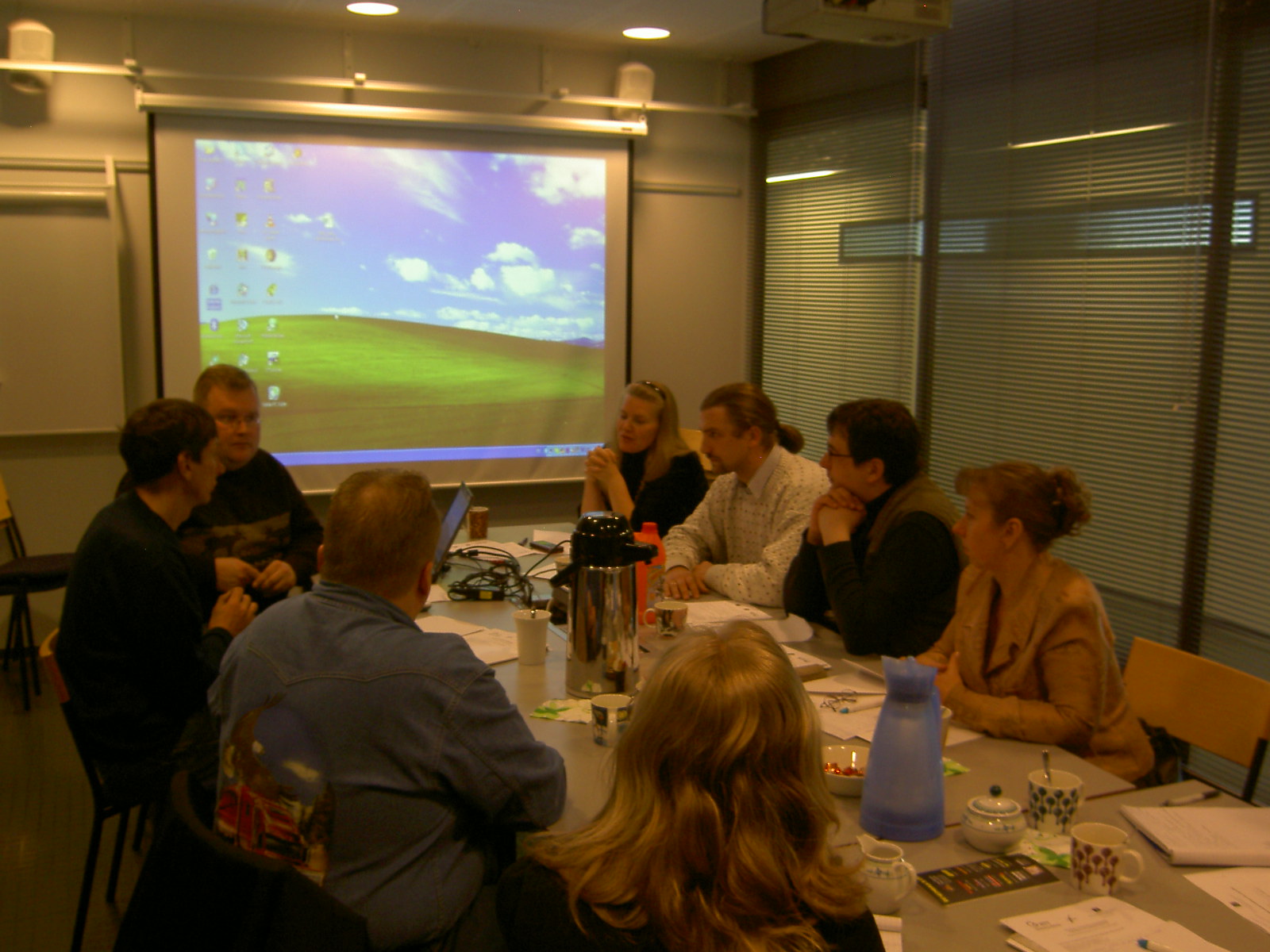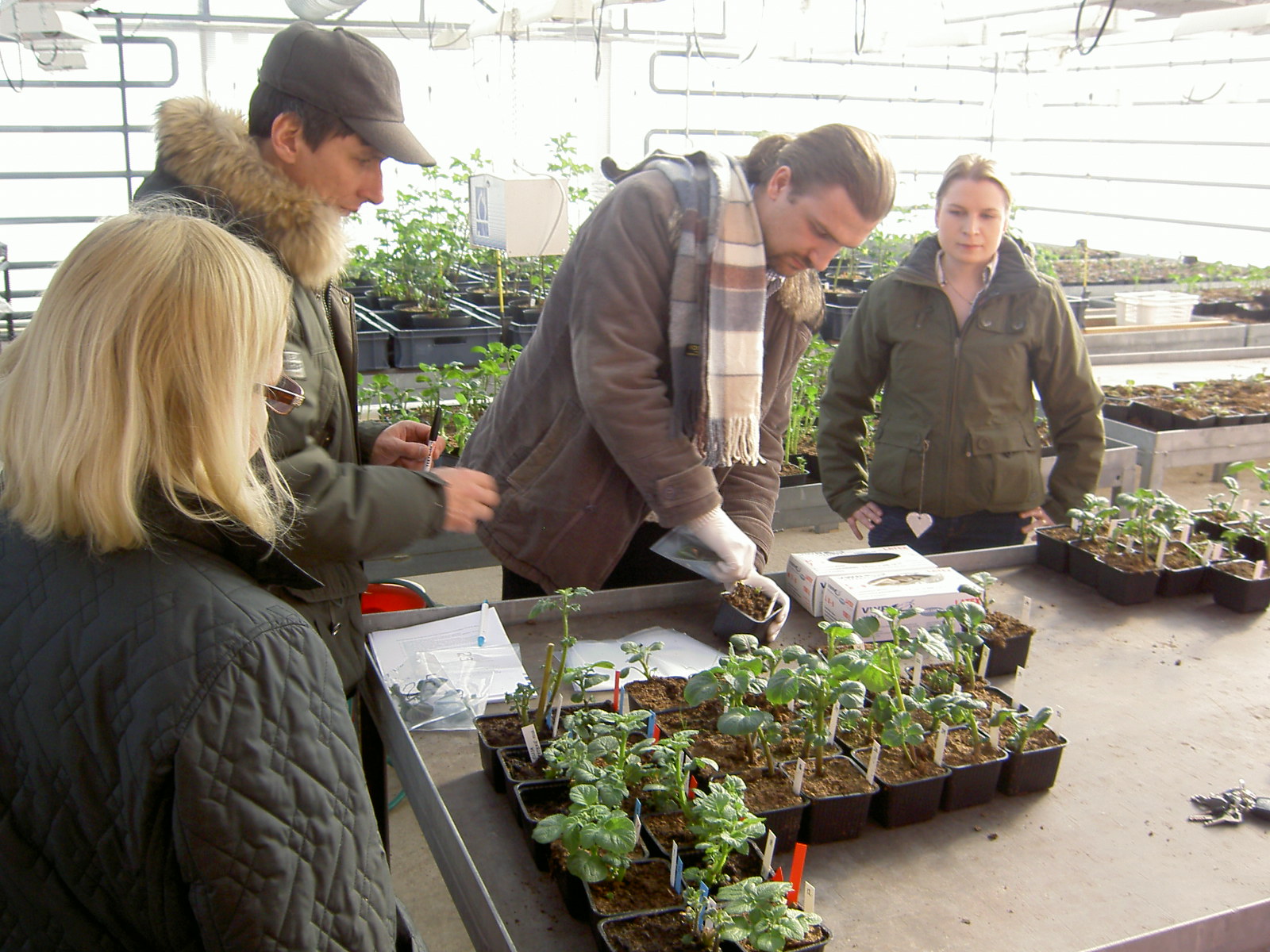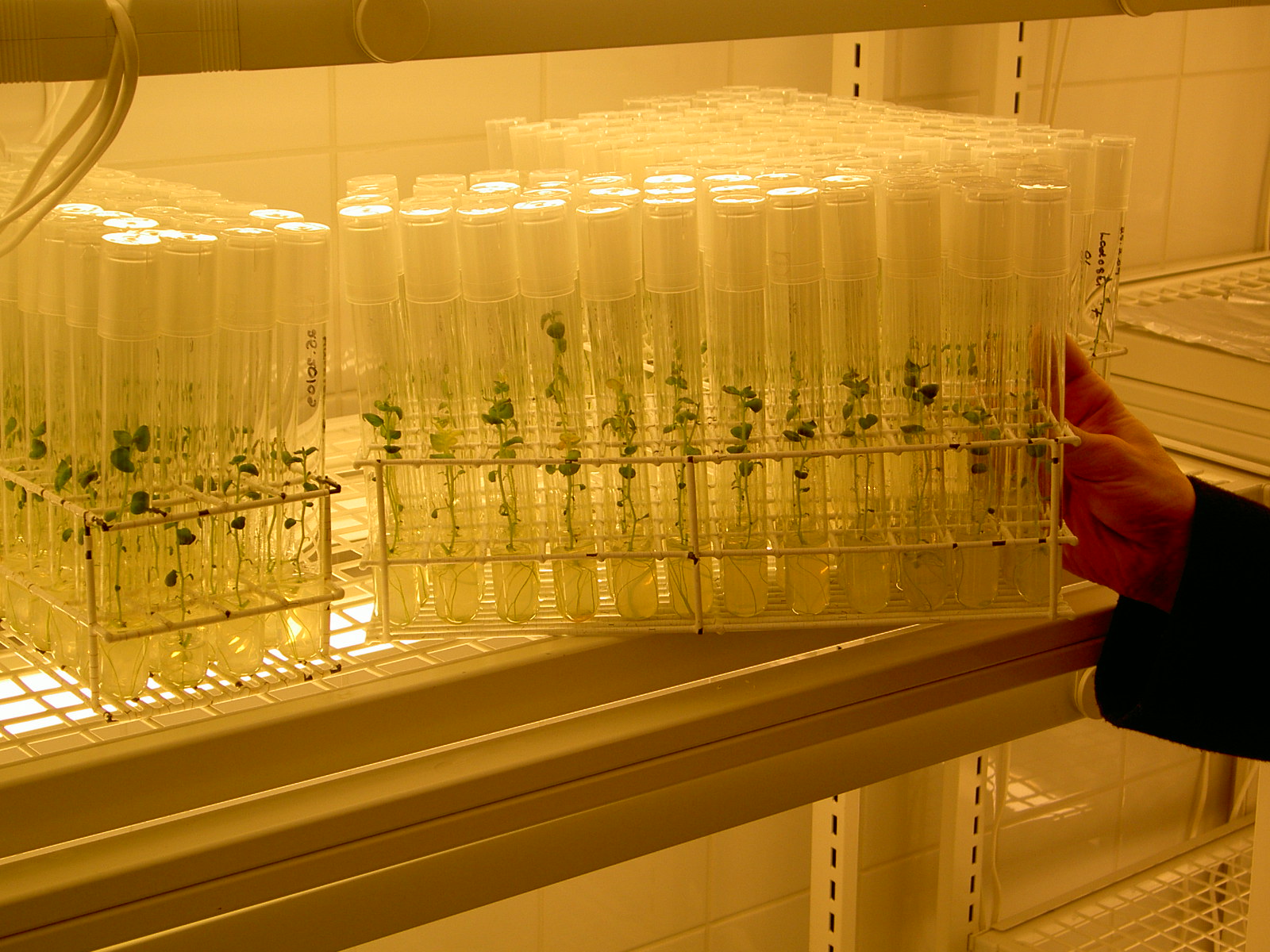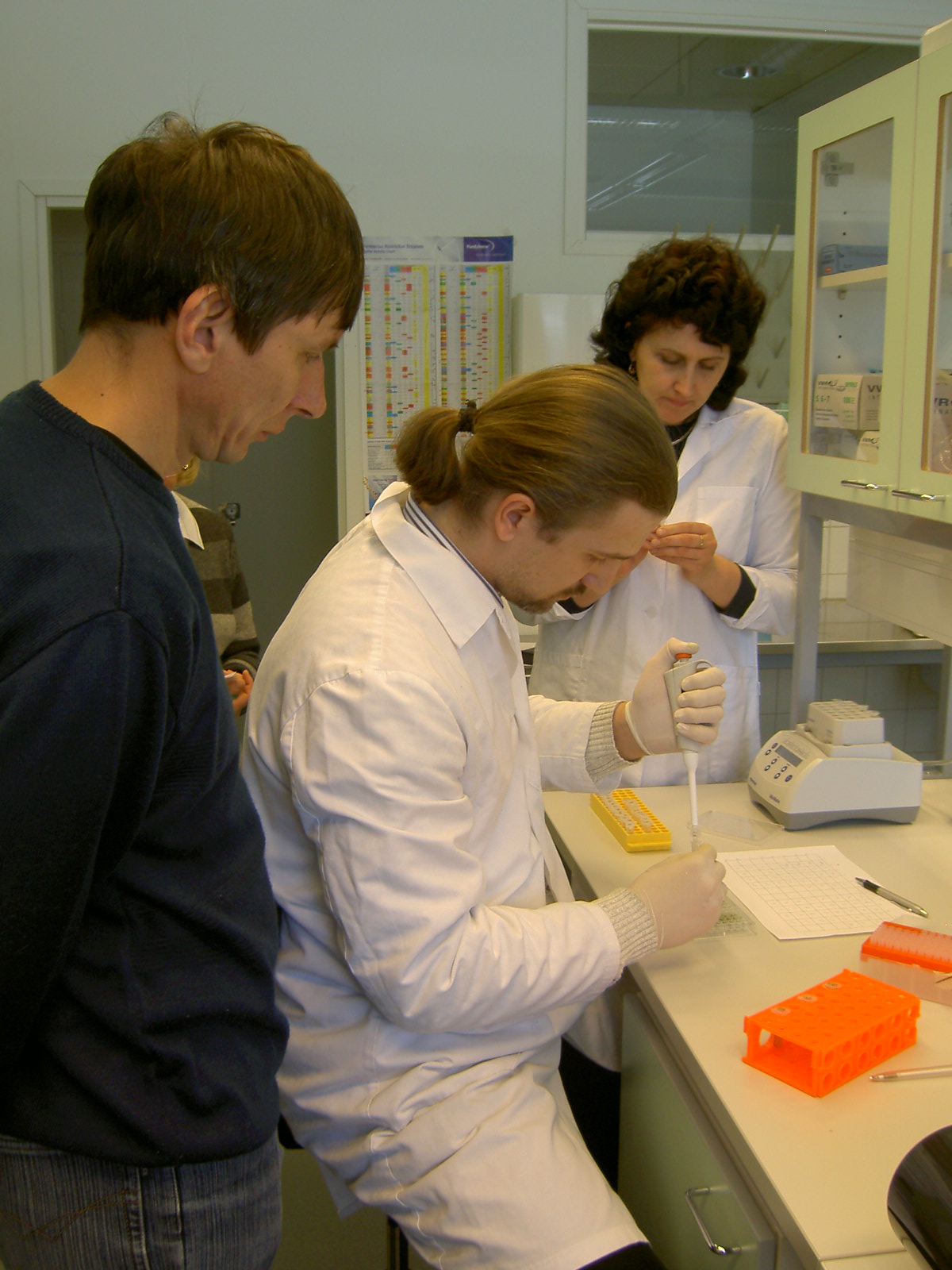| |
Russian potato specialists in Oulu in
March 2009
| Researchers Evgeny Tihonov, Larisa
Kuznetsova, Alexander Konovalov and Ljubov Moskulenko
from PetrSU together with farmer Andrey Sosunkevits
visited Oulu in March. Four days, which they
spent in Oulu, were filled with visits to
various organisations, lectures, conversations,
but also with practical excercises. On Wednesday
on the agenda were the results from the last
year's field experiment, especially the plant
diseases and fertilisation issues. On Thursday
morning the the visitors acquinted themselves to
computer based cultivation planning - the Visu
Programme. After this it was time to move
from words to action, from meeting rooms to
laboratories. |
| 
The guests and the hosts at the
Uiversity of Oulu
|
| The
guest were divided into two, some of them
continuing their day at the Ruukki Research
Station of MTT. Here they could learn in detail,
how the potato samples, which had been taken at
the test field and brought to Finland, had been
examined. Plants had been grown from last
year's crop potatoes in the green houses of the
research station. Numerous virus analyses had
been doen using these plants, and also the guest
were given the chance to get to know to
Elisa-method and to carry out all the phases of
the virus testing. The researchers and the
farmer could find out by themselves, were
potatoes infected with viruses or not. |

|

|
 |
The reseachers got more information about modern virus
defination methods at the research starion of MTT - and more
importatntly - they were able to try the methods out by
themselves. The same goal was set for the other group, to do
something by yourself. Finnish Seed Potato Centre had
produced disease free test tube plants from the Russian
cultivas, which were to be taken to Petrozavodsk in May,
where they would form a seed bank at the PetrSU. Before the
plants were to be handed over to Petrozavodsk, it was
decided that the researchers would need some information
about the practices and methods of seed bank. This is the
reason why the second group stayed in Tyrnävä at the Seed
Potato Centre. The researchers had an opportunity to carry
out different methods and practices related to maintaining
of a seed bank with the assistance of Finnish specialists.
The purpose of the training was to ensure that the
researcers would be able to implement the seed bank in their
home university after the project has ended.
Back to the main page of the
project
Arkisto
|
|
